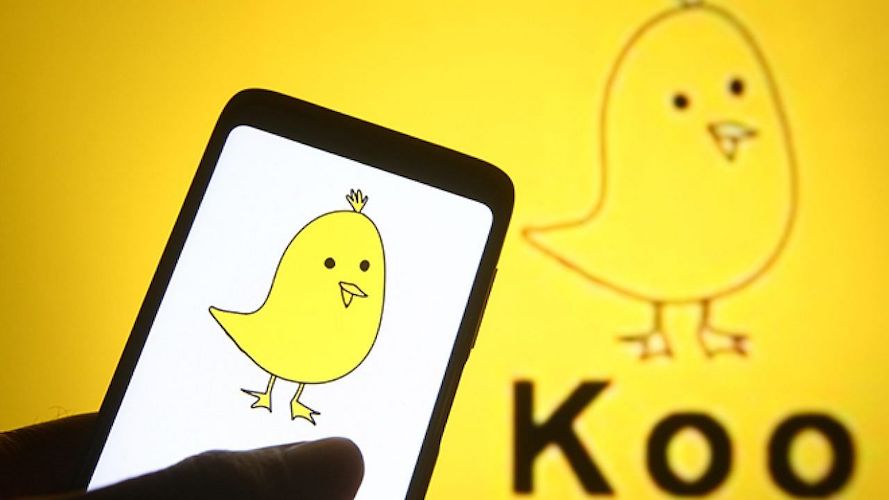Short-Lived Wins In Nigeria & Elsewhere Crash India’s ‘Twitter Killer’

Koo, the Indian microblogging app that swooped in as an alternative when Nigeria banned X (previously Twitter) in 2021, is struggling, reports suggest, as it appears the fairytale rise of the “local language” platform might be running out of steam.
Koo arrived in Nigeria amid a perfect storm. Tensions between the Nigerian government and X were high following the removal of a controversial post by then-President Muhammadu Buhari, which resulted in Nigerian authorities blocking off X, leaving a gap in the market. Capitalising on this opportunity, Koo, with its support for multiple languages, was seen as a promising alternative. Government officials and celebrities quickly joined the platform, further bolstering its appeal.
However, just a few years later, Koo’s dream appears to be fading back home in India and elsewhere. The app, which once saw millions of downloads, is now grappling with dwindling user engagement and a struggle to secure funding, Rest of World reports. Analysts point to several factors behind Koo’s fall from grace.
While the initial surge of users was undeniable, many seemed motivated by the anti-X sentiment rather than a genuine preference for Koo. The platform failed to translate this initial interest into long-term engagement. Critics also argue that Koo lacked a clear focus, attempting to be an X clone one moment and an Instagram competitor the next.
Originally launched in India in 2020, Koo initially enjoyed a surge, fueled by government support and celebrity endorsements. After its opportunistic Nigerian entry, it also managed to expand to Brazil, claiming millions of downloads.
Founded by serial entrepreneurs Aprameya Radhakrishna and Mayank Bidawatka, Koo raised over USD 57 M and reached a peak valuation of USD 285.5 M, with notable U.S, investment firm Tiger Global among its backers. The app has seen nearly 60 million downloads since its launch, with monthly active users peaking at over 9 million in July 2022,
However, the dream has since turned sour. By 2023, Koo was laying off staff and desperately seeking a lifeline – a partnership with a larger company that remains to be achieved.
When Nigeria banned X in June 2021, Koo, a young Indian startup, saw its chance to shine. Within a week, President Buhari himself signed up, instantly boosting the app’s profile. Government officials followed suit, making Koo seem like the new official hangout. The company even invested in the region, hiring local language experts and teasing new features.
But just two years later, the Nigerian dream fell comatose. Former President Buhari’s account remains a digital monument to a bygone era, his last post a relic of November 2021. Monthly active users in Nigeria have plummeted from a peak of 289,000 in August 2021 to a measly 40,000 by September 2023. Nigerians who downloaded the app out of curiosity have vanished, leaving behind a digital graveyard of inactive accounts, reports gather.
What went wrong? Several factors sealed Koo’s fate in Nigeria. First, Nigerians migrated back to X when the ban lifted – their social circles were already there. Second, experts believe the government’s push for Koo backfired. Nigerians, already unhappy with the X ban, saw Koo as an unwelcome government-backed intrusion. Many simply downloaded VPNs and stayed on X.
Back in India, another challenge Koo faced was the issue of hate speech. Reports indicate the platform struggled to moderate such content effectively, leading to concerns about online safety. Furthermore, its early association with right-wing figures in India cast a long shadow, making it difficult to attract a wider audience.
Amid its struggles, attempts to raise further funding have not yielded fruit. Reports suggest investors aren’t convinced of its monetisation prospects having spent big on marketing and tech while making little money. An analysis by local tech media platform Entrackr suggests Koo spent almost USD 16.5 M on advertising and promotions during the 2022 financial year, when its revenue was just over USD 650,000 K.
Today, Koo is a far cry from the vibrant platform it once seemed to be. The company is laying off staff and actively seeking pathways for survival.
With a fraction of its peak user base (active user base dropped from 7.2 million to 2.7 million between June 2023 and February 2024), Koo’s future remains uncertain. While the dream of an alternative social media giant may not be entirely dead, a massive, improbable turnaround is needed to keep Koo from fading into obscurity.